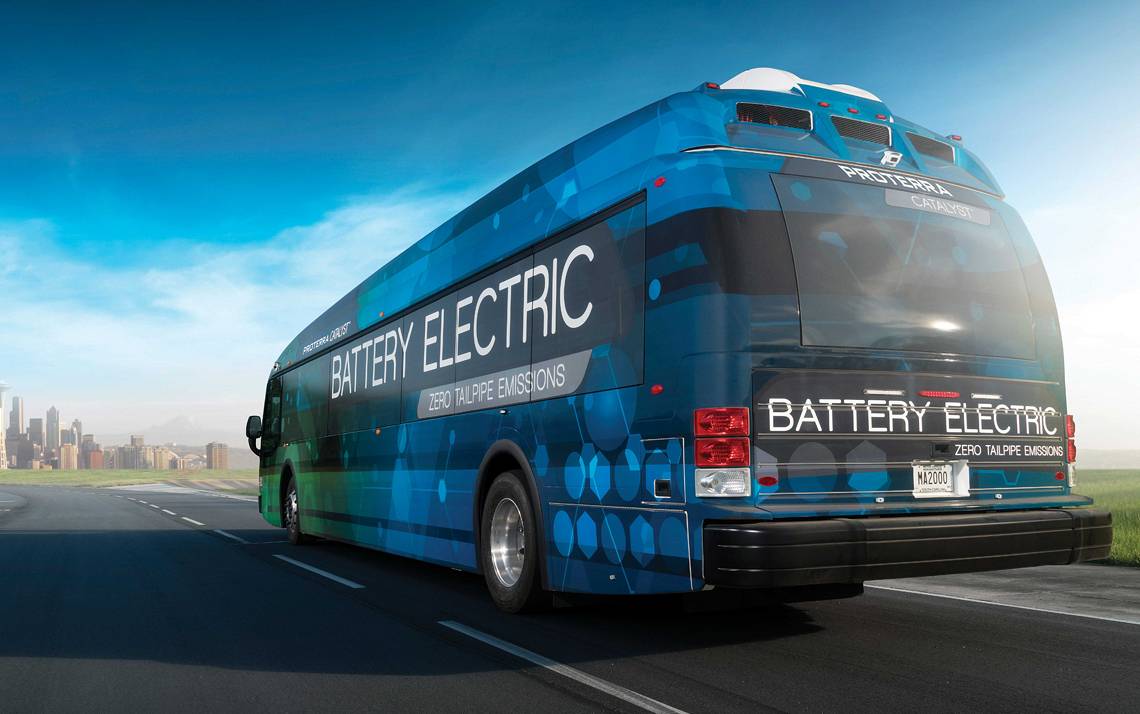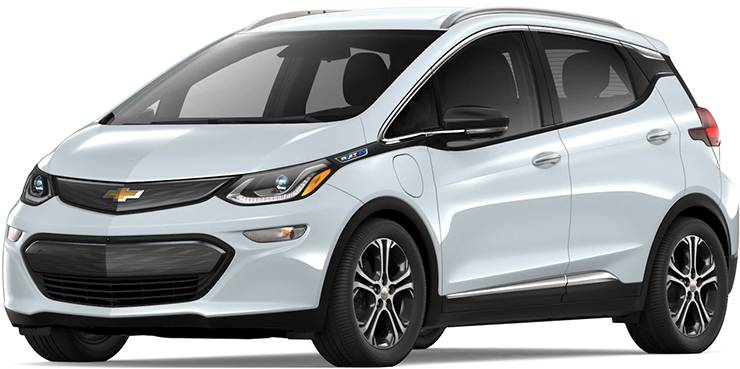New Electric Vehicles To Hit Duke Roads
Duke puts sustainability first with two new campus electric transit buses and vehicle

Duke is adding two new battery-electric buses and a fully-electric car to its fleet in another sustainable step toward carbon neutrality by 2024.
Each 40-foot Proterra Catalyst E2 bus can carry up to 40 seated passengers and operate for about 200 miles on a single charge. The battery-electric buses release zero tail pipe emissions, require no oil changes and use no liquid fuels. Proterra, an automotive and energy company based in Burlingame, Calif., will construct the buses, which arrive on campus in July 2020.
In addition to the buses, an all-electric Chevy Bolt will arrive in November 2018. The Bolt runs 238 miles on a single charge and will also join the Parking & Transportation Services fleet.
“This was an easy decision to make,” said Carl DePinto, director of Duke Parking and Transportation Services. “The buses are clean, quiet and support our goal of becoming a climate-neutral institution.”
Duke currently operates 24 buses that run on hybrid-diesel or diesel fuel. The new battery-electric buses will replace two diesel vehicles, saving Duke about $924,000 in maintenance, fuel and vehicle costs over the lifespan of the two new buses, DePinto said.
“Duke joins a growing list of forward-thinking educational institutions implementing Proterra electric vehicle technology and creating healthier campus communities,” said Ryan Popple, CEO of Proterra. “We are proud to provide the Duke community with Proterra Catalyst electric buses, supporting the university’s sustainability initiatives with clean, quiet campus transportation.”
Dale Hill, founder of Proterra, will speak about his business at the kickoff event for Duke Energy Week on Nov. 4. Energy Week will explore the future of energy technology and research Nov. 4-9 around the University.
 Since initiating the University's climate commitment in 2007, Duke has reduced the campus greenhouse gas footprint by 24 percent. However, since 2007, Duke has seen a 9 percent increase in total emissions from employee commuting, air travel and Duke-owned fleets.
Since initiating the University's climate commitment in 2007, Duke has reduced the campus greenhouse gas footprint by 24 percent. However, since 2007, Duke has seen a 9 percent increase in total emissions from employee commuting, air travel and Duke-owned fleets.
“Using electric buses is a big step toward reaching our goal of being carbon neutral by 2024,” said Jason Elliott, assistant director of Sustainable Duke. “The buses will be a great way for students, staff and faculty to experience the impact of the work Duke is doing in sustainability.”
As part of its overall sustainability efforts, Duke plans on buying electric buses as it moves into future purchases, DePinto said.
The Chevy Bolt will join Duke’s parking and transportation enforcement fleet by the end of this year. The all-electric vehicle won’t need an oil change and will be equipped with an automatic license plate reader, a computer-controlled camera that captures license plate numbers.
“The Chevy Bolt is a huge win because we’ll never have to put gas in the vehicle,” DePinto said. “It’s a huge perk in terms of maintenance and sustainability.”
Got a story idea or news to share? Share it with Working@Duke.